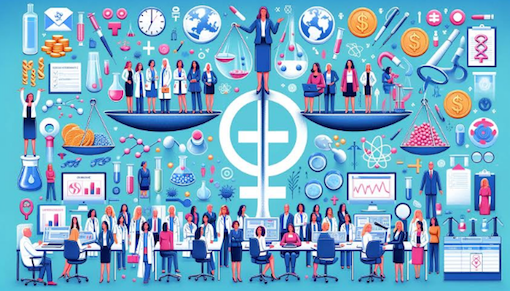
In the realm of the public sector in life sciences, remarkable women are at the helm, steering initiatives and shaping policies that impact millions. From regulatory bodies to research institutions, these leaders exemplify excellence and resilience.
There’s Dr Choong May Ling, who serves as the chief executive for Singapore’s health regulatory body, or China’s leading epidemiologist Prof. Li Lanjuan, who was instrumental in the country’s fight against COVID-19. There's Dr Diana Siew, who is taking New Zealand's medtech sector to greater heights, along with many other inspiring women. These women, among many others, inspire the next generation of leaders and pave the way for inclusive and equitable practices in the life sciences sector.
We are celebrating International Women's Day on March 8, by spotlighting women's roles and challenges in life sciences, spanning leadership, clinical trials participation and pay parity issues. The story is divided into three parts. The first part highlights the remarkable achievements of women leading the public sector organisations in life sciences in APAC. In the second section, we will be discussing the persistent issue of pay parity in the sector, while the final section tackles issues related to women in clinical trials. Let's delve deeper.
Singapore
Leader par excellence
Dr Choong May Ling, Mimi, CEO, Health Sciences Authority (HSA)

Dr Choong May Ling, Mimi, was appointed as Chief Executive Officer of the Health Sciences Authority (HSA), Singapore in 2014. She oversees HSA’s broad public health responsibilities, including health products regulation, the national blood service, and national analytical and forensic sciences and forensic medicine services.
Dr Choong began her civil service career as a doctor in the Ministry of Health and has worked at Singapore General Hospital, Kandang Kerbau Hospital, and Ministry of Health Headquarters. She has also served in various capacities in many ministries, including the Ministry of Finance, the Ministry of Health, the former Ministry of Communications and Information Technology, and the Ministry of Information, Communications and the Arts. She was Deputy Secretary (Security) in the Ministry of Home Affairs from December 2003 to April 2010, and Deputy Secretary (Services) in the Ministry of Education from May 2010 to May 2014 before joining HSA.
Under her leadership, HSA was recognised by the World Health Organization (WHO) as a WHO-Listed Authority (WLA) in October 2023. This designation signifies HSA's advanced regulatory performance, ensuring high standards of safety, efficacy, and quality for medicines in Singapore. HSA had also achieved WHO Maturity Level 4 in January 2022 for operational efficiency.
Trailblazing advocate of diversity
Dr Shuwen Koh, Director, Technology Transfer and Innovation, NUS Enterprise
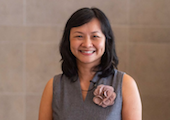
Dr Shuwen Koh stands at the intersection of technology, innovation, and healthcare, wielding her expertise to revolutionise the landscape of biomedical sciences. With over 15 years of experience in technology commercialisation roles, Dr Shuwen is a trailblazer in fostering collaboration, driving breakthroughs, and advocating for diversity within the industry. As the Deputy Group Chief Technology Officer and Director of Innovation at the National University Health System (NUHS), Dr Shuwen is instrumental in propelling Singapore's innovation and startup ecosystem forward.
In an Experimental Drug Development Centre (EDDC) grant review, a project on pre-eclampsia faced scepticism from male reviewers unfamiliar with the condition's implications. Women on the panel challenged this oversight, emphasising the urgency: ‘Why has this condition been overlooked for so long?’ Their advocacy shifted the discussion, focusing on the project's scientific merit and clinical importance.
“That moment brought home the point that diversity and inclusivity, at every step of healthcare innovation, is key to the long road ahead for equitable access to healthcare. I was struck by the privilege of having a seat at the table. The power and concomitant responsibility reinforced my resolve to speak up on issues which matter to me, as well as being a voice for others who are under-represented,” she said.
At NUS Enterprise, Dr Shuwen's strategic initiatives focus on fostering collaboration between researchers, entrepreneurs, and investors to translate cutting-edge research into practical solutions. Through public-private partnerships and patient capital investment approaches, she paves the way for groundbreaking discoveries to reach fruition.
Giving young entrepreneurs a heads-up and an important piece of advice, she says, “I believe in ‘we for she’. Find your voice, tribe, cheerleaders, and sponsors. Know and engage your key stakeholders. There are different seasons in life, there will be trade-offs, so know your non-negotiables. And enjoy the ride!”
Australia
Uprooting gender bias
Jaala Pulford, Chair, MTPConnect
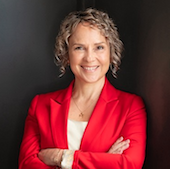
Jaala is Chair of MTPConnect, Australia’s Growth Centre for the medical technology, biotechnology and pharmaceutical sector. She enjoyed a distinguished career as a senior minister in the Victorian state government, including serving as Minister for Innovation, Medical Research and the Digital Economy until her retirement ahead of last year’s state election. In this key portfolio, she led the establishment of mRNA Victoria and, working with the Australian Government, secured pandemic-scale manufacturing capability for Australia through the partnership with Moderna. She was also instrumental in bringing BioNTech to Australia to deliver further R&D and manufacturing capabilities. One of Australia’s leading women, she’s at the forefront when it comes to promoting gender diversity and has been an inspiration to many.
“My first Ministerial appointment broke over a century of tradition when I was appointed the state's first female Minister for Agriculture. Early on the Government decided that all board appointments would be gender balanced, within a year. This came from a commitment to have those boards look more like the communities they serve or represent. This caused women all over the state to consider that perhaps they did have something to offer - on the water board, the hospital board or the local further education board. Many of these people have since gone on to private sector leadership and governance roles. Both the government and cabinet are now gender-balanced, quite the achievement given that when I was elected in 2006, only 77 women had sat in the Victorian Parliament in its first 100 years,” she said.
Throughout her career, she has supported greater gender equality, and this role at MTPConnect, is no different.
“We have countless talented women in our life sciences institutions and universities, in computing, engineering and research but they remain underrepresented in leadership roles and underrepresented in entrepreneurship. Some of this is caused by gaps in knowledge by investors - think about femtech with its massive potential markets and the dispiriting low levels of investment. Our health system undeniably suffers from gender bias and so too, does our life sciences sector,” she concluded.
Determined warrior against HIV
Prof. Sharon Lewin, Director, Doherty Institute

Prof. Sharon Lewin is a world-renowned infectious diseases expert known for her groundbreaking work in HIV research. As the inaugural Director of the Doherty Institute and a Professor of Medicine at The University of Melbourne, she leads pioneering research aimed at finding a cure for HIV and understanding its interaction with the hepatitis B virus. She serves as the President of the International AIDS Society (IAS) and holds a National Health and Medical Research Council (NHMRC) Practitioner Fellowship.
One of Prof. Sharon's notable contributions to HIV research was her early discovery of HIV latency, revealing that the virus can 'hide' at low levels in infected individuals even during effective antiviral therapy. Her research on HIV latency models has been instrumental in developing new treatments for HIV.
She is a distinguished figure in the field of HIV research, with over 360 publications and 100 international talks to her name. Notable achievements include co-chairing the International AIDS Society Towards an HIV Cure initiative and leading the National COVID Health and Research Advisory Committee. Recognised for her impactful contributions, she received the Officer of the Order of Australia (AO) in 2019 and the Melbourne Achiever Award in 2020. In 2022, she was honoured with the Australian Academy of Health and Medical Sciences Outstanding Female Researcher Medal.
"As a woman in science, I look forward to the day when having two consecutive female presidents isn’t remarkable – but today it is, and I’m proud to be a part of this new era," Prof. Sharon said in a statement while accepting the presidency of IAS from Prof. Adeeba Kamarulzaman.
China
Fearlessly fighting epidemics
Prof. Lanjuan Li, Director, State Key Laboratory for Diagnosis and Treatment of Infectious Diseases
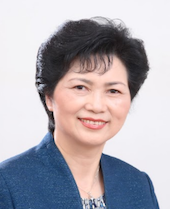
Prof. Lanjuan Li, serves as the director of the State Key Laboratory for Diagnosis and Treatment of Infectious Diseases, distinguished as an academician of the Chinese Academy of Engineering. Renowned for her groundbreaking work on the development of artificial liver and the formulation of infectious microecology theory, Prof. Lanjuan has led her team to achieve comprehensive breakthroughs in virology, including advancements in molecular structure elucidation, rapid detection methods, virus culturing techniques, vaccine development, and clinical therapies.
Throughout her career spanning over five decades, she has demonstrated unwavering dedication to preventing and controlling emerging epidemics and infectious diseases. Fearlessly venturing into the forefront of outbreaks, she has selflessly volunteered to combat various infectious diseases, including SARS, HFMD, earthquake-related epidemics, and H1N1 influenza.
Lanjuan played a critical role in advising the government's response to the COVID-19 outbreak in Wuhan. Leading a panel of senior experts representing the National Health Commission, she advocated for timely and stringent measures, including the controversial decision to quarantine Wuhan.
World-renowned ‘Batwoman’
Dr Zhengli Shi, Director of the Center for Emerging Infectious Diseases, Wuhan Institute of Virology
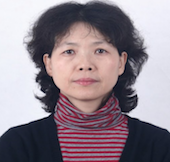
Dr Zhengli Shi, a prominent virologist affiliated with the Wuhan Institute of Virology, Chinese Academy of Sciences, serves as the director of the Center for Emerging Infectious Diseases. Revered as a top Chinese virologist, she gained international attention as the ‘batwoman’ amid the Wuhan lab leak controversy.
Her research is primarily focused on molecular epidemiology and interspecies infection mechanisms of emerging zoonotic viruses, particularly those originating from bats. Her pioneering work includes the discovery and characterisation of significant bat-borne viruses, marking her as a trailblazer in the field. Notably, she played a pivotal role in identifying the bat origin of Severe Acute Respiratory Syndrome (SARS), contributing immensely to the prevention and control of zoonotic emerging infectious diseases in China.
Due to her exceptional contributions in understanding the SARS virus and her passionate dedication to researching bats and viruses, Dr Zhengli earned the moniker 'batwoman'.
Japan
Inspiring next-gen female scientists
Dr Noriko Osumi, VP, Tohoku University

Dr Noriko Osumi, a distinguished Japanese neuroscientist, holds multiple prestigious positions at Tohoku University, Japan’s oldest university, serving as Vice President responsible for public relations and diversity promotion, Director of the Tohoku University Library, and Director of the Center for Neuroscience. Additionally, she is a professor in the Department of Developmental Neuroscience at the Tohoku University School of Medicine.
Dr Noriko is Japan's foremost female scientist, recognised for her remarkable contributions to developmental biology and neurosciences. Her research interests span brain development, evolution, and disease, with a particular focus on understanding the molecular mechanisms underlying these processes. Notable ongoing projects in her laboratory include investigations into the molecular mechanisms of brain development and evolution, lipid biology of astrocytes, and the use of animal models to study neurodevelopmental disorders.
Beyond her scholarly pursuits, Noriko is a fervent advocate for gender equality in academia. Since 2006, she has been instrumental in spearheading the Tohoku University Science Ambassadors programme, formerly known as the Science Angels programme. This initiative aims to empower and inspire the next generation of female scientists, serving as a cornerstone of Tohoku University's efforts to promote women's participation in science and technology.
Korea
Committed to ensuring public health & safety
Prof. Yu-Kyoung Oh, Minister, Ministry of Food and Drug Safety

Prof. Yu-Kyoung Oh, appointed as the Minister of Ministry of Food and Drug Safety (MFDS) in 2022, is a distinguished pharmaceutical expert. Before her ministerial role, she was the Dean of the College of Pharmacy at Seoul National University.
Her research focuses on the delivery of nucleic acid-based drugs and the innovative design of functional nanomaterials. She has over 220 SCI papers published and 26 patents.
Under her leadership, the MFDS achieved the highest regulatory status, Maturity Level Four (ML4), recognised by the World Health Organization (WHO). This distinction sets MFDS apart as the only regulatory authority among 33 countries to attain ML4 for both locally produced and imported medicines and vaccines. Prof. Yu-Kyoung's leadership exemplifies a commitment to excellence, innovation, and ensuring public health and safety.
Squashing infectious diseases
Dr Youngmee Jee, Commissioner of the Korea Disease Control and Prevention Agency (KDCA)

Dr Youngmee Jee stands at the forefront of infectious disease control and prevention as the Commissioner of the Korea Disease Control and Prevention Agency (KDCA). With over two decades of dedicated service in the field of international infectious diseases, Dr Youngmee brings a wealth of expertise and leadership to her role.
A distinguished infectious disease specialist, Dr Youngmee has been actively engaged in pivotal positions across major Korean and international health and medical research institutes. Notably, she served as the head of the National Institute of Health's Center for Infectious Diseases Research and Immunopathology Center and held the prestigious position of president of the Korean Society of Infectious Diseases.
She served as a key member of the WHO-Korea Joint Mission on MERS-CoV Outbreak in the Republic of Korea. In recognition of her outstanding service and leadership, Dr Youngmee was bestowed with the President Medal of Distinguished Service in 2017.
India
Boosting indigenous & affordable tech
Dr Alka Sharma, Adviser, Department of Biotechnology, Ministry of Science & Technology, Government of India
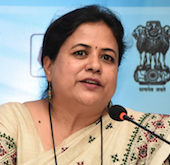
Dr Alka Sharma currently serves as an adviser in the Department of Biotechnology, Ministry of Science & Technology, Government of India. Her role primarily involves addressing research and policy issues in the emerging field of biotechnology. Dr Alka has been actively engaged in med-tech innovation, collaborating with national and international partners. She focuses on translational research concerning stem cells, regenerative engineering, and the establishment of bioclusters across the country.
Dr Alka’s efforts have significantly contributed to the commercialisation of indigenous and affordable technologies, benefitting patients in both urban and rural areas. She has facilitated the creation of several startups, developed functional biomedical device prototypes, and facilitated technology transfers. Her involvement extends to formulating various legislations in the biotech sector and overseeing COVID-19-related activities as the Nodal Officer for Management in the Department of Biotechnology/BIRAC.
New Zealand
Drawing women to Medtech
Dr Diana Siew, Strategy & Partnerships - Auckland Bioengineering Institute; Co-founder, Consortium for Medical Device Technologies (CMDT) and Co-lead Te, Titoki Mataora MedTech Research Translator

One of the leading forces in New Zealand’s medtech sector, she has been instrumental in shaping the country’s medtech ecosystem. Dr Diana, has successfully co-founded strategic initiatives to help connect and grow New Zealand's medical devices and digital health sector through collaborative partnerships nationwide. Some of these national initiatives include the Consortium for Medical Device Technologies (CMDT) a national industry-research network (co-lead with Peter Hunter), the MedTech CoRE (as Associate Director), the Trans-Tasman BioBridge, Women in HealthTech and Te Titoki Mataora MedTech Research Translator (co-lead ). Special focus on activities supporting translational research and early-stage startups. She contributes to the medtech community through advisory and governance roles and is on the Return on Science Medical Devices Investment Committee.
Her current, most exciting project is the development of Medtech-iQ, a national medical devices and digital health innovation hub led by the University of Auckland and the Auckland Bioengineering Institute in conjunction with the CMDT.
Her involvement in initiatives like Women in HealthTech aims to envision the landscape changing for women in the medtech sector in the coming years.
“There are some fantastic women leaders in medtech but the sector can do with still more women founders, entrepreneurs, innovators and investors - and certainly more bioengineers and engineers. Having more women in Medtech and other technology fields brings a diversity of perspectives and skills which can only enrich innovations. “
Diana is hopeful that the growing awareness and focus on gender diversity will propel more women in the medtech sector.
“Men and women have different styles of working and leading and there is no right or wrong. With the growing awareness that diverse thinking is a must for companies and a growing cohort of women leaders in Medtech, I am hopeful that environments will be created to support and women succeed in Medtech.”
Her advice to young entrepreneurs; “I’ll reinforce having faith in yourself. If you don't believe in yourself, who will? However, this needs to be part of a bigger picture - add in understanding what you stand for, integrity and decisiveness. Identify your strengths and know where you should bring in expertise. Bring in people who share your vision and passion; build a team around you and the venture. Make sure that people have a shared sense of ownership and pride in the venture as well.”
Ayesha Siddiqui
Read the next section....




